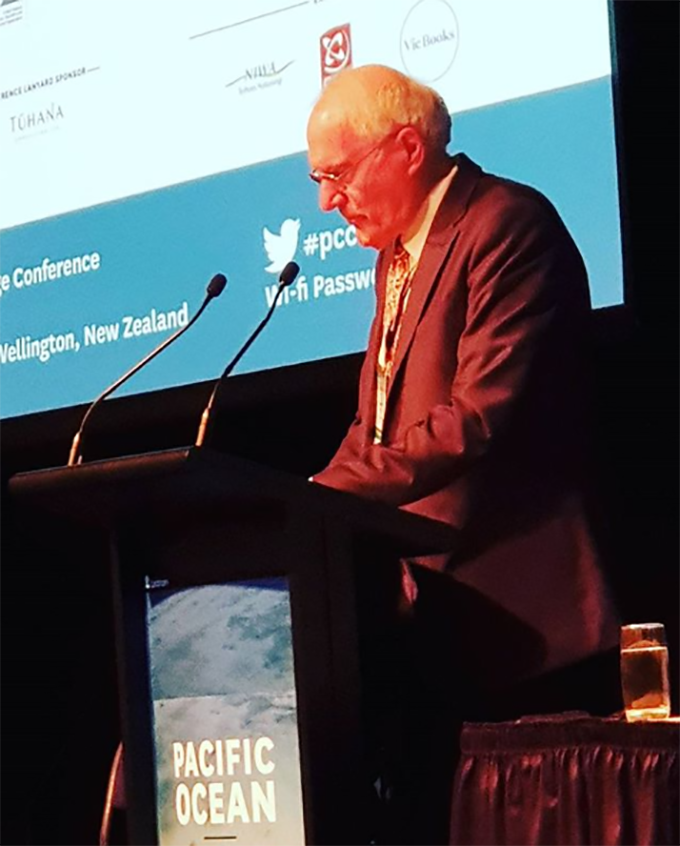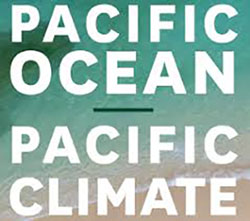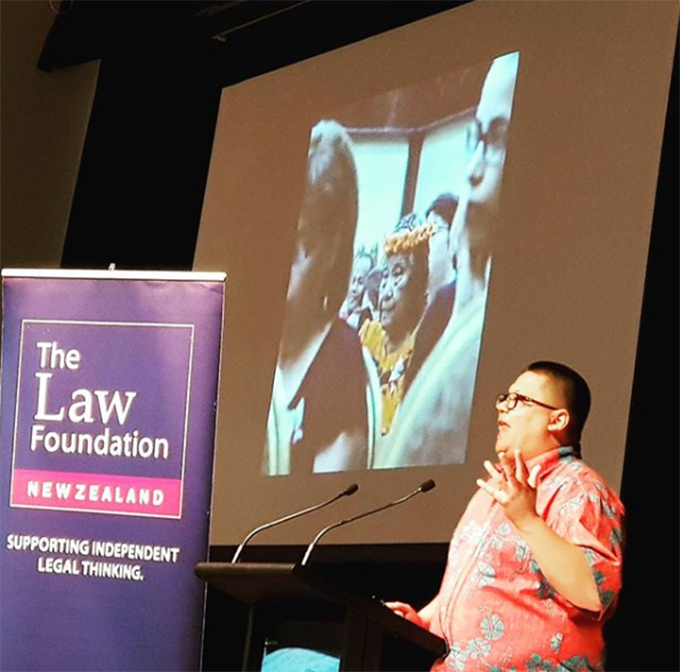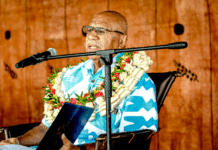
By David Robie at Te Papa
A former New Zealand prime minister has warned that climate change has the potential to force a legal and political upheaval that the world would underestimate “at its peril”.
Speaking in a keynote address at the Pacific Ocean Climate Conference at Te Papa Museum in Wellington yesterday, Sir Geoffrey Palmer said a largely unexplored aspect of climate change lay in the “potential to force the revision of many fundamental and long accepted methods of doing government and organising its institutions”.
 New Zealand would not be able to solve this problem alone and it would need levels of international cooperation “not yet achieved”.
New Zealand would not be able to solve this problem alone and it would need levels of international cooperation “not yet achieved”.
“The four horsemen of the Apocalypse in the [biblical] book of Revelation were pestilence, war, famine and death. Climate change has the capacity to produce those conditions to a worrying extent in the future,” said Sir Geoffrey, now distinguished fellow in Victoria University’s Faculty of Law.
“We underestimate at our peril the challenges that it will bring and that it has brought already.”
He cited riots and massive refugee flows as some early examples.
Sir Geoffrey said New Zealand would need to ensure that the instruments of government – both domestically and internationally – were adjusted to meet the challenges and this “poses a formidable set of issues”.
Climate change lawsuit
Sir Geoffrey made the comments in an analysis of a recent landmark, but unsuccessful, legal challenge to the New Zealand government over climate policy made by a 26-year-old law student, Sarah Thompson.
He also gave an in-depth overview of the state of environmental law in the country.
Commentators at the Te Papa conference, including Sir Geoffrey, hailed Thompson for bringing the test case, which sought a court ruling over the National-led government’s two key climate goals and argued these no longer met New Zealand’s obligations under the COP21 Paris targets.
Media publicity about Justice Jillian Mallon’s 25-page judgement delivered on November 2 was relatively muted, however, given that New Zealand’s climate policies changed with a Labour-New Zealand First-Green government taking office.
Sir Geoffrey said Sarah Thompson’s name would always be remembered in relation to climate change lawsuits.
“Endless further iterations of the Paris agreement will be necessary before substantial progress is made [over climate change jurisprudence],” Sir Geoffrey said.
He added that as he had written in other legal papers, he was “not sanguine that the mechanisms for making international law and enforcing it effectively are adequate to allow us to be confident that climate change can be properly addressed”.
In Paris in June 2017, the Global Pact for the Environment had been unveiled and it was a “powerful document that would remedy many difficulties with the international law for the environment were it binding”.
Not binding
The problem was that it was not binding and there did not seem “an immediate possibility” that it would become binding.
New Zealand’s domestic legal situation now needed to be designed with a durable framework that could endure over time and would not be the subject of “sudden policy lurches” due to changes of government.
Sir Geoffrey said the Parliamentary Commissioner for the Environment and the Waitangi Tribunal had the potential to provide alternatives to the official narrative and “these could both be helpful in stimulating public opinion to demand more from elected representatives”.
Also, New Zealand was one of only three countries in the world without a written constitution and provision of an environmental right in such a written, codified constitution would offer the courts “more capacity than they have now” to rule on climate change issues.
However, it was unrealistic to expect the courts to become major players in climate change policy.
“You would be better off talking to politicians,” he added.
Two activist lawyers from the North Pacific disagreed with Sir Geoffrey’s pessimistic view while also giving keynotes at the Te Papa conference session, although they were dealing mostly with American-based legal jurisdictions.
Invoking indigenous rights
Dr D. Kapua Sproat, acting director of Ka Huli Ao Centre for Excellence in Native Hawai’ian Law and director of the Environmental Law clinic at the University of Hawai’i at Manoa, said Native Hawai’ians could invoke indigenous rights to environmental self-determination.
She said human rights and constitutional restorative justice legal principles could and were being used to challenge the dominant culture.
Julian Aguon of Guam, founder of boutique Blue Ocean Law, said it was a challenge to confront deep-sea mining negotiators and corporate lawyers in “wild west” style cases in the Pacific.
He said he had been working on the issue in several countries and was concerned that 27 deep sea exploration contracts had been awarded in a field of law where there was no or little oversight or regulation.
Aguon said an unsavoury “cast of characters” had embarked on a new “minerals gold rush” in the Pacific’s so-called “rim of fire” region since 2012.
He was dedicated to protecting indigenous customary and traditional rights, which were already being negatively impacted on by the “catastrophic” deep-sea exploration disturbances.
“The Pacific has always been a place where you can dump your trash,. blow up your bombs,. and now to mine your seabed,” he said.













































[…] also warned that countries, New Zealand included, would be ignoring an impeding climate change governance upheaval “at their […]
Comments are closed.